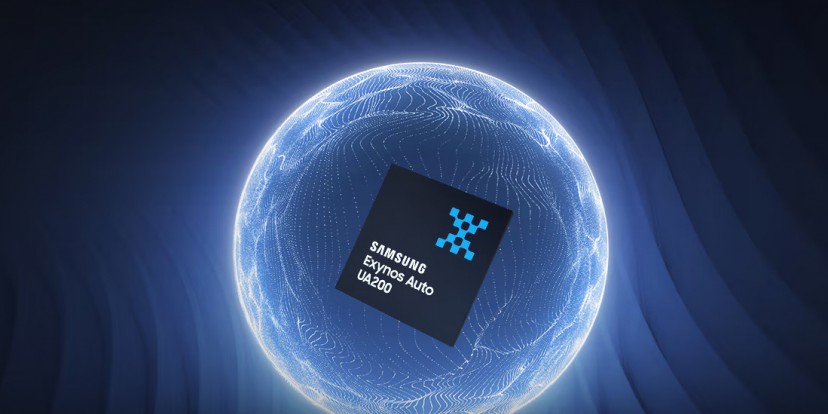Samsung recently introduced the Exynos Auto UA200 UWB chip, an upgrade from the UA100, featuring Ultra-Wideband connectivity, precise distance measurement, and enhanced security. Manufactured by Samsung LSI, it offers centimeter-level accuracy for locating car key fobs and includes a radar function to monitor the driver’s respiratory rate. The chip supports mandatory Child Presence Detection (CPD) in Europe from 2025 and employs a Scrambled Timestamp Sequence (STS) for secure data handling. With three Cortex-M33 microcontrollers, a baseband block, and 2MB eFlash storage, the UA200 supports up to six channels and is expected to appear in future vehicles soon.
Recently, Samsung introduced its Exynos Auto UA100 UWB chip designed for vehicles, and shortly after, the company revealed the more sophisticated Exynos Auto UA200 version, which boasts several enhanced features alongside UWB connectivity.
The Exynos Auto UA200 is produced by Samsung LSI, the semiconductor arm of the conglomerate. It includes Ultra-Wideband connectivity, precise distance measurement, and sophisticated security functionalities. With centimeter-level accuracy, this chip can accurately pinpoint the location of your car key fob.
Additionally, the chip is equipped with a radar function, capable of monitoring the driver’s respiratory rate and supporting Child Presence Detection (CPD), which has become a required feature in Europe starting from 2025.
This silicon securely manages all data using Scrambled Timestamp Sequence (STS), which encrypts the timing information of the signal. Unlike the lower-tier Exynos Auto UA100, it can handle up to six channels instead of just two.

In terms of specifications, the UA200 features 3x Cortex-M33 microcontrollers, a baseband block, a radio frequency block, NVM storage, a Power Management Unit, and 2MB of eFlash storage. The new technology has already been distributed to clients, so we can expect to see it integrated into upcoming vehicles in the near future.
Source
